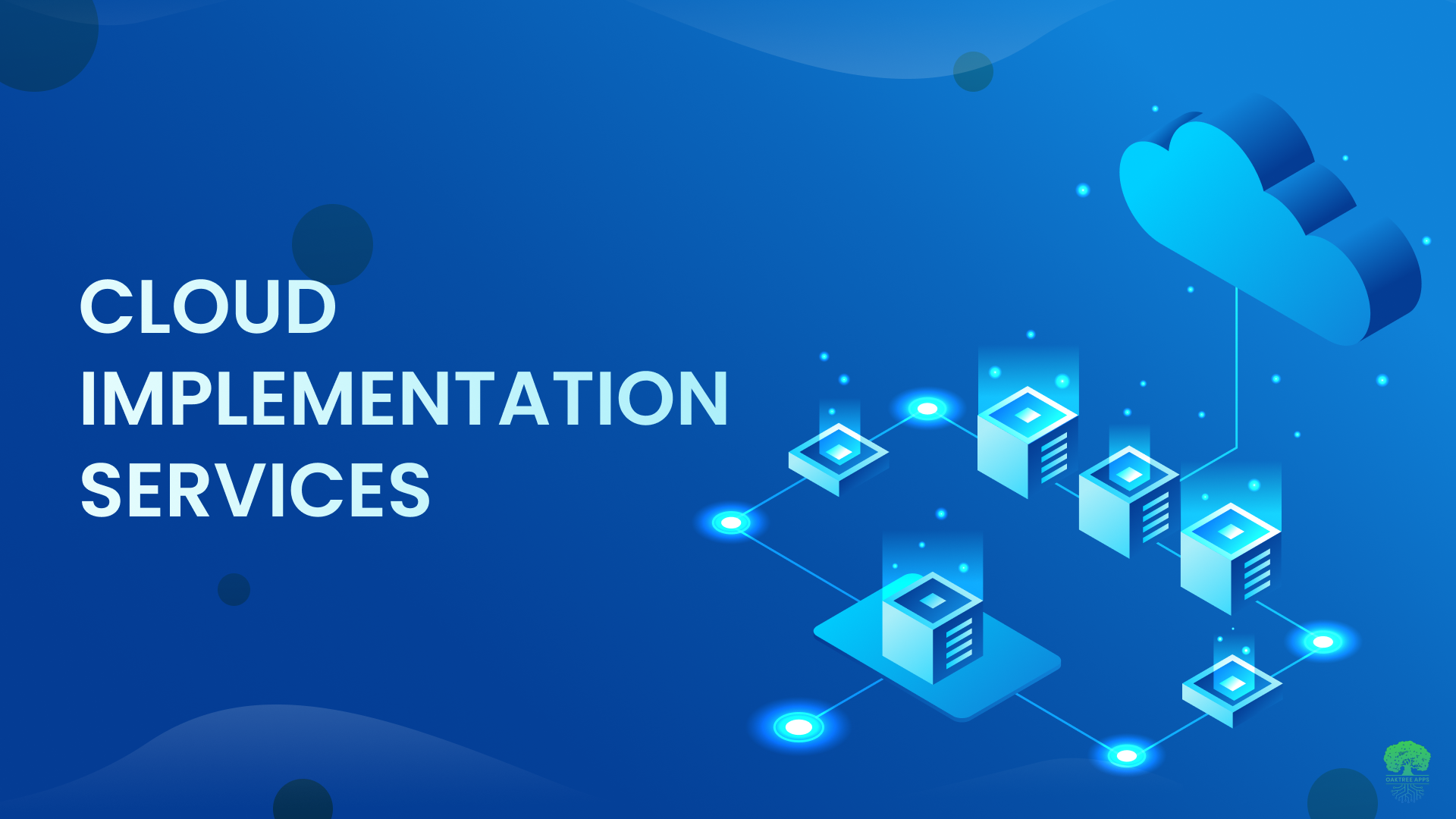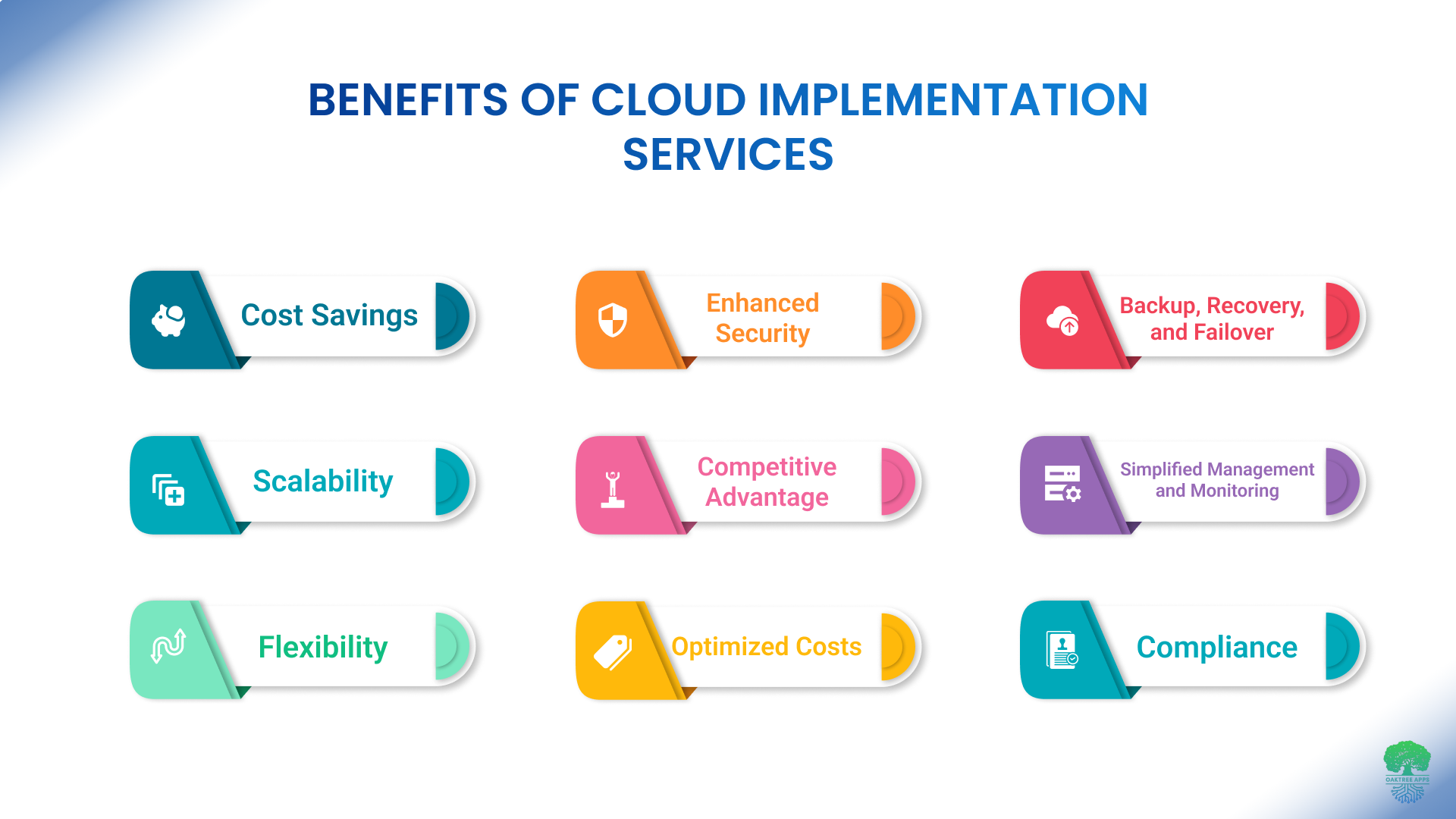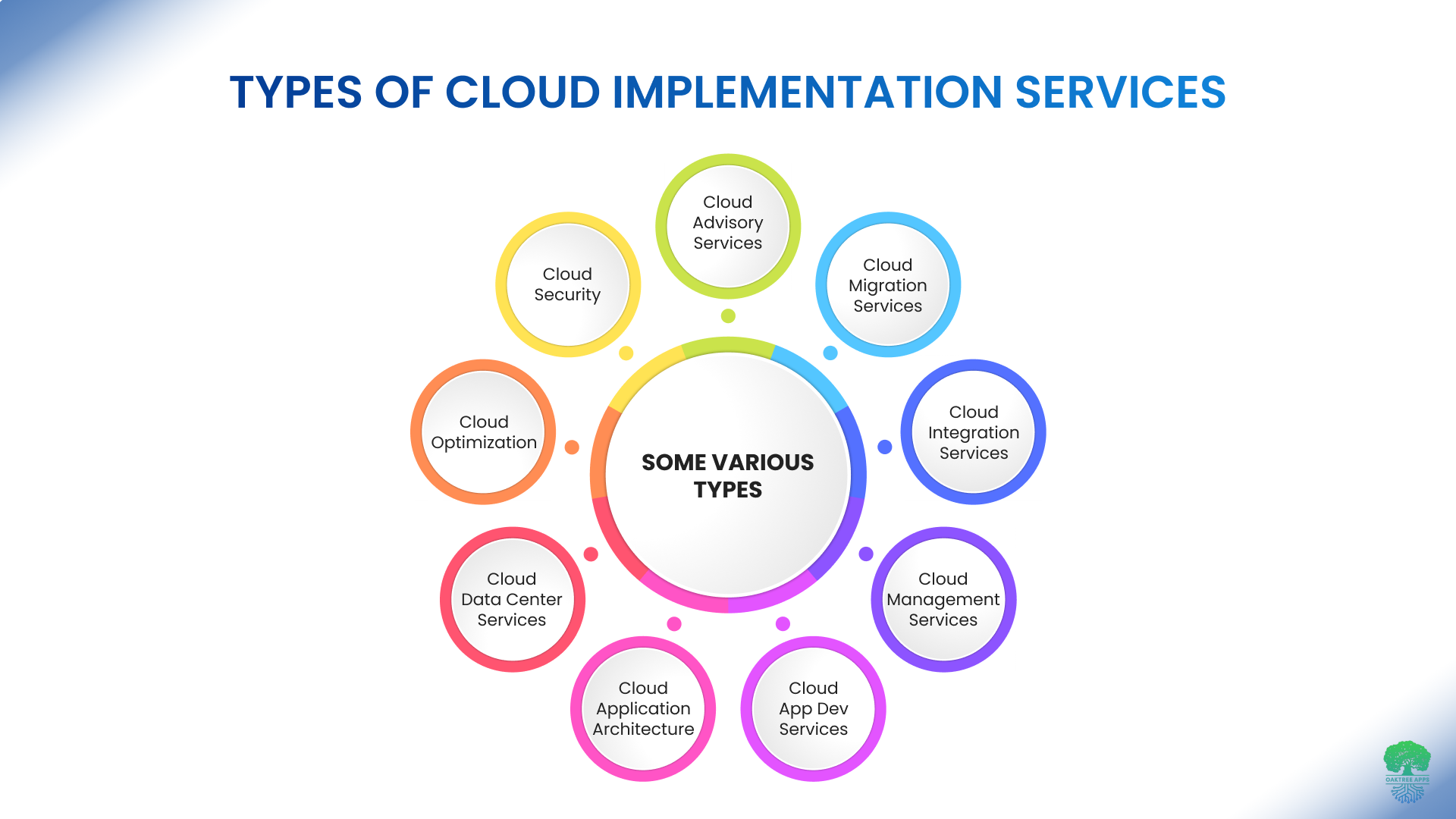May 11 2023

Cloud computing has become an unavoidable part of our everyday lives. Even if you are not aware of cloud services directly, if you are using services like Gmail, Netflix, Spotify, and YouTube, they are all running on cloud platforms. By 2025, over 100 zettabytes (billion terabytes) of data will be stored in the cloud, and around 60% of the world’s corporate data will be stored in the cloud.
With on-demand computing resources accessible from anywhere worldwide, the cloud has become an indispensable tool for companies of all sizes and industries. Gartner states that public cloud services spending could reach almost $600 billion in 2023; however, while failure to embrace the cloud risks falling behind the competition, moving to the cloud can be a complex and daunting task requiring specialized expertise and experience.
In this blog, we will explore the benefits of cloud computing for businesses, the challenges and considerations involved in cloud migration, and the role of cloud implementation services in ensuring a successful transition.
What are Cloud Implementation Services?
Cloud implementation services involve a range of activities that are aimed at helping organizations transition their digital assets, including applications, data, and workloads, from on-premises infrastructure to cloud-based infrastructure. These activities can include Cloud assessment, Cloud strategy and planning, Cloud migration, Cloud deployment and configuration, and finally, Cloud management and support.
The goal of Cloud implementation services is to help organizations leverage the benefits of cloud computing, including improved scalability, flexibility, cost savings, and faster time-to-market for new products and services and reduce the risk of downtime, data loss, and other migration-related issues, while also enabling them to take advantage of the benefits of the cloud such as scalability, cost savings, and increased agility.

Benefits of cloud implementation Services
Cost Savings: Implementing cloud services can significantly reduce the need for on-premises infrastructure, such as servers, storage, and networking equipment. Organizations can avoid upfront capital expenditure and only pay for the necessary resources, scaling up or down as required. Moreover, cloud services can eliminate costly hardware upgrades and maintenance.
Scalability: Cloud implementation services offer unparalleled scalability, enabling them to scale infrastructure up or down based on demand, avoid overprovisioning and reduce costs. Additionally, cloud services allow businesses to quickly provision and de-provision resources as required, helping them to respond more rapidly to market changes.
Flexibility: Cloud implementation services provide businesses with the flexibility to choose the computing resources and services that best fit their needs. Organizations can mix and match cloud services, such as IaaS, PaaS, and SaaS, to create a customized solution that meets their specific requirements. Additionally, cloud services enable businesses to access computing resources from any location and on any device, providing greater flexibility and mobility for employees.
Enhanced Security: Cloud providers invest heavily in security and compliance, ensuring robust security measures to protect against cyber threats. Additionally, most public clouds have built-in security features and specialized cloud security tools to help protect an organization's resources.
Competitive Advantage: Cloud implementation services can give organizations a competitive advantage by allowing them to quickly innovate and bring new products and services to market.
Optimized Costs: Cloud implementation services offer significant savings in resource, maintenance, and real estate costs, in addition to the ability to optimize workloads so that they cost less to run. Organizations don't need to pay for and maintain IT assets that they may only use occasionally.
Simplified Management and Monitoring: Organizations can manage and monitor their on-premises data center and cloud resources from a single screen if the cloud provider offers a central management tool.
Compliance: Some cloud platforms have specialized offerings to seamlessly meet compliance requirements, which is ideal for highly regulated industries like finance, healthcare, and government.
Backup, Recovery, and Failover: Most cloud providers help to improve business continuity by offering built-in, one-click backup and recovery capabilities.
Need Help with Cloud Implementation?
OakTree Apps is here to support your plan with expert strategies and guidance.
Let’s Work Together
Types Of Cloud Implementation Services
There are several types of cloud implementation services that businesses can choose from, depending on their needs and requirements. Here are some of the most common types of cloud implementation services:
Cloud Advisory Services: Cloud advisory services provide guidance and recommendations on cloud strategy, planning, and design. These services help businesses identify their unique requirements, assess their readiness for the cloud, and develop a roadmap for successful cloud adoption. Cloud advisory services provide insight into the costs and benefits of different cloud deployment models (public, private, or hybrid) and help businesses select the right cloud solutions and providers.
Cloud Migration Services: Cloud migration services help businesses move their applications, data, and infrastructure from on-premises environments to the cloud. These services involve a detailed assessment of the existing IT infrastructure, identifying dependencies, and developing a migration plan that minimizes downtime and disruption. Cloud migration services also include data migration, application re-platforming or re-architecting, and testing to ensure that applications and workloads run smoothly in the cloud.
Cloud Integration Services: Cloud integration services help businesses integrate their on-premises applications, data, and systems with cloud-based applications and services. These services enable businesses to create a seamless, integrated IT environment that spans multiple cloud platforms and on-premises systems. Cloud integration services can also help businesses create custom connectors and APIs to integrate their legacy systems with modern cloud applications.
Cloud Management Services: Cloud management services provide ongoing management and optimization of cloud-based infrastructure, applications, and services. These services include monitoring, security, backup, disaster recovery, and performance optimization to ensure that cloud-based resources are always available and running efficiently. Cloud management services also help businesses manage costs and compliance by providing real-time visibility and control over cloud usage and spending.
Cloud Application Development Services: Cloud application development services leverage modern cloud-native technologies and tools to build scalable, secure, and highly available applications that can be deployed across multiple cloud platforms. These services include application design, development, testing, deployment, and ongoing maintenance and support.
Cloud Application Architecture: This refers to the design and structure of cloud-based applications. A good architecture is critical for ensuring that the application is scalable, resilient, and performs well under load.
Cloud Data Center Services: Data center services are essential for ensuring that the cloud infrastructure is always available and performing optimally. These services include hardware and software maintenance, security management, and capacity planning.
Cloud Optimization: This process comprises continuously monitoring and improving cloud services to ensure they perform optimally and meet business objectives. This includes optimizing resource utilization, improving application performance, and reducing costs. Cloud optimization is an ongoing process that requires continuous monitoring and adjustment.
Cloud Security: To ensure that the cloud infrastructure and applications are secure and protected from unauthorized access and attacks by implementing security measures such as firewalls, encryption, access controls, and monitoring.
Cloud Governance: This involves defining and enforcing policies and procedures for the usage of cloud services, including managing access to cloud resources, defining data retention and deletion policies, and ensuring compliance with regulations and standards.
Challenges in Cloud Implementation Service
Cloud migration can be a game-changer for organizations, offering improved ROI, scalability, and reduced risk. However, it also poses several challenges:
Planning: A successful cloud migration requires extensive planning involving key business, technical, and leadership stakeholders.
Cost: Cloud migration will cost time, money, and resources, and cost estimates for planning and implementation are essential.
Security and compliance: While cloud providers offer security and compliance options, migrating organizations are responsible for implementing the right solutions for their needs.
Business downtime: Migrating massive amounts of data to the cloud requires careful planning to minimize downtime.
Organizational adoption and training: Upfront cloud skill-building and training can set organizations up for success during and after migration.
Migration partner or vendor selection: For organizations lacking in-house expertise or capacity, they are invaluable resources with services and experience matching their needs and business considerations.
Legacy applications: Not all applications can easily move to the cloud. Identifying which applications are worth keeping and which should be rebuilt is critical.
Key dependencies: As you plan your migration, it's important to identify key infrastructure and application dependencies.
Business support: A successful cloud migration requires buy-in from stakeholders across the business.
Choosing a Cloud Implementation Services Provider
Choosing the right cloud implementation services provider is crucial for the success of your cloud adoption journey. Here are some factors to consider, questions to ask, and best practices to follow when selecting a cloud implementation services provider:
Expertise and Experience: Look for providers with a track record of successfully implementing cloud solutions for organizations in your industry.
Service Offerings: Consider the range of cloud implementation services the provider offers and ensure that they align with your organization's needs and goals.
Industry Focus: Select a provider that has experience in your industry and understands the unique challenges and opportunities it presents. The provider should be able to offer industry-specific solutions and insights that will help you achieve your business objectives.
Scalability: Verify that the provider can scale their services to meet your changing needs and accommodate future growth and expansion. The provider should be able to provide a flexible and scalable solution that can grow and evolve with your organization.
Security: Security should be a top priority when choosing a cloud implementation services provider. Look for providers with robust security measures to protect your data and applications and comply with relevant security standards and regulations.
Best Practices
- Define your organization's requirements and goals before selecting a cloud implementation services provider.
- Evaluate multiple providers and compare their services, expertise, and pricing.
- Look for providers with flexible pricing models that align with your budget and payment preferences.
- Ensure that the provider communicates clearly and transparently and provides ongoing support and maintenance.
- Establish a service level agreement (SLA) that outlines the provider's responsibilities, service guarantees, and escalation procedures. This will help you ensure that the provider is accountable for delivering high-quality services and meeting your expectations.
Looking for the Best Cloud Implementation Service Provider?
Then you are at the right place. We offer comprehensive cloud implementation services backed by industry-leading experts.
Contact us nowIn conclusion, cloud implementation services are essential for organizations that want to leverage the benefits of cloud computing. Choosing the right cloud implementation services provider can be challenging but critical for success.
OakTree provides businesses with the expertise, guidance, support, and resources they need to successfully migrate their operations to the cloud and unlock the full potential of this revolutionary technology.
If you need help with cloud implementation, we can provide customized and comprehensive cloud implementation services tailored to your needs and goals. Our team of experienced and certified cloud implementation professionals can guide you through every step of the process and ensure a successful and smooth transition to the cloud.
FAQs
Cloud implementation services can help organizations enhance their security by providing robust security measures that protect their data and applications from cyber threats, breaches, and vulnerabilities. Cloud implementation services can help organizations comply with relevant security standards and regulations and provide continuous monitoring, auditing, and reporting of their cloud solution's security posture.
To implement a successful cloud strategy, you should follow a systematic approach that involves the following steps: Define your cloud objectives and goals Analyze your current IT infrastructure, applications, and data Evaluate different cloud deployment models and providers Develop a cloud migration plan and timeline Optimize your cloud infrastructure, applications, and data Monitor and measure your cloud performance and costs Continuously improve your cloud
We use a variety of tools and technologies for cloud implementation, including Amazon Web Services (AWS) cloud platform, as well as automation tools, monitoring tools, and security tools.
There is no one-size-fits-all approach to cloud implementation, as each organization has unique needs, goals, and challenges. However, by following a systematic approach that involves planning, migration, integration, optimization, monitoring, and support, and by working with experienced and certified cloud implementation professionals, organizations can increase their chances of success and maximize the benefits of cloud computing.

